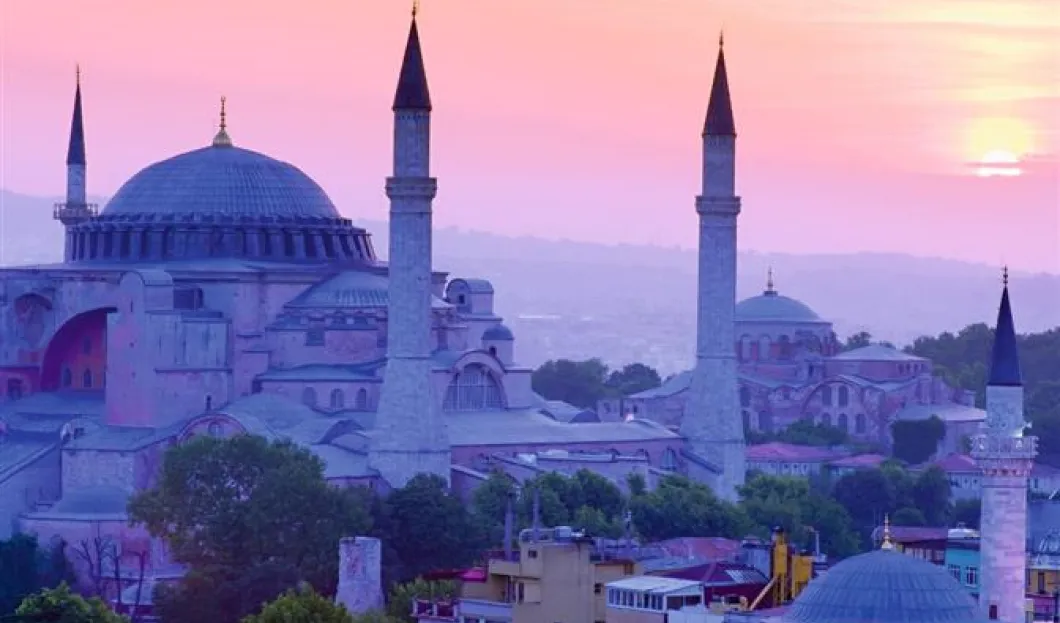
Turkey has been a major holiday destination for German tourists. After the assault on a German tour group in Istanbul, this may change: experts rate this terror as a whole new level.
Tourists in Istanbul are packing their bags, travel companies are offering free booking changes. After the recent terror attacks, which took the lives of ten people, many visitors of the Turkish metropolis do not feel safe anymore. What does this mean for tourism in the long run? Will city travelers avoid the previously hot destination in the future?
Tourism experts expect bookings to recede. Often, the effects of such assaults are limited to certain regions and timeframes, according to Martin Lohmann from the tourism research institute in Kiel. This time however might be different: "This kind of terrorism directly targets tourists. That is a whole new level."
The suicide bomber detonated himself in the midst of a German travel group in the tourist area of Sultanahmed. This was the second assault on tourists within two days. On the same weekend, two young men attacked a hotel in the Egyptian travel destination Hurghada at the Red Sea and injured three tourists.
Five years after the Arabic spring, the southern and eastern part of the Mediterranean is not finding any peace. The tourist industry explicitly mentions "insecurities". In December, FVW magazine reported that expectations for 2015 were much more conservative than in previous years. Bookings at the eastern Mediterranean Sea were much slower than those in Spain or Portugal.
The tourism industry of Turkey has suffered in recent years as well – especially due to the lack of Russian tourists, which have stopped coming since a Russian fighter jet was shot down by the Turkish military. Russia was one of Turkey’s most valuable tourist nations. Now, Germany is back on top.
Since 2012, the number of German tourists in Turkey largely increased. According to Turkish authorities, 5.5 million German guests visited the country in 2015 – which equals a revenue increase of four percent in vacations to Turkey for the German tourist association (DRV). The country used to be one of Germany’s most popular travel destinations, closely behind Italy and Spain. It’s uncertain however, if this will still be the case after this year’s tragic start. The bookings for summer have just started.
"Traditionally, this would be the time where families book their Turkey vacations. But now, most are probably going to wait", said Fritz Joussen, CEO of TUI. Trying to predict how this summer in Turkey will turn out would be the same as looking in a crystal ball. "We will have to live with this insecurity and offer alternatives."
The Federal Department for Foreign Affairs did not issue any travel warning, but made its travel alert stricter. Currently, it advises tourists in Istanbul and other Turkish metropolitan areas to avoid large gatherings in public places and in front of tourist attractions.
More than 95 percent of tourism takes place on West-Turkey’s beaches, a spokesperson of Germany’s largest travel business TUI said. In recent history, Istanbul was a frequent target of terrorist attacks. In spite of that, Turkey still developed quite well. However, it is “hard to say” if this is going to repeat after these attacks.
A great example of how quickly travelers can turn away from a country is Tunisia: with more than 400,000 German tourists, it is one of North Africa’s most popular travel destinations and managed a fast recovery after a sharp decline in the year of Arabic spring.
Last year, the number of tourists decreased again due to attacks of the Bardo-Museum in Tunis and an assault on tourists on the beach of Sousse. For 2015, the German tourism association (DRV) expects a percentage decrease in the double-digits – and this is despite the fact that Germany did not issue a travel warning. According to assessments made by a TUI spokesperson, the country still has good chances: "The hotels improved, the general supply too."
Even Egypt was able to recover from rapid declines after the Arabic spring. Last year, bookings from Germany displayed double-digit increases despite the plane crash on Sinai. It remains to be seen if the assault in Hurghada has any effects on this situation, a TUI spokesperson said. If there is direct reaction, it could have devastating results. According to a spokesperson of the DRV, more than 90 percent of German tourists visit the mainland region at the Red sea around Hurghada and Marsa Alam.
The relatively stable Morocco however benefitted from the insecurity of other countries in the Maghreb-region, with twice as many German tourists in 2014 compared to 2012. Last year, the DRV recorded an additional ten percent increase. But the North African region still remains in turmoil. Recent figures issued by the Moroccan ministry of tourism show how French tourists turn their back on the country – with 40 percent, France used to be the country’s largest group of tourists. In the first half of 2015, French tourists booked roughly 15 percent fewer vacations than in 2014.
Germans will not stop their vacations - this can be seen in the steadily increasing travel expenses of previous years. However, the industry is already certain that Mediterranean tourism will shift westward again. Spain might benefit from the insecurity of Arabic countries – as well as Germany’s most popular travel destination: Germany itself.









